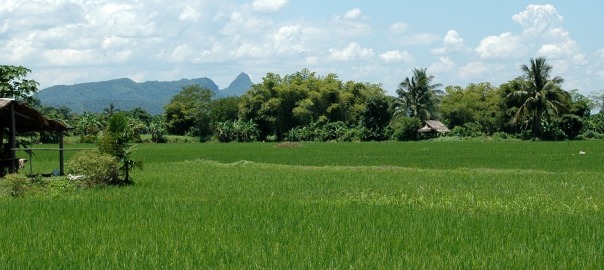The Emergence of Environmental Law in South-East Asia

“The Emergence of Environmental Law in South-East Asia” was the theme chosen by the Association of International Business Lawyers (AJAI) as part as its annual conference which took place on the 15th of March at the French Institute of Cambodia.
The AJAI is a students Association of the Master in International Business Law of Paris II – Panthéon-Assas University, relocated at the Royal University of Law and Economics of Phnom Penh and the University of Economics qnd Law of Ho chi Minh City. Each year, it organizes a symposium in Vietnam or Cambodia, on a current topic in the region of South-East Asia highlighting the legal issues rising by this subejt.
Thus, the theme chosen this year was undoubtedly welcome. Today, the undeniable importance of global warming, coupled with the unprecedented economic boom in South-East Asia, leads us to the conclusion that there is an urgent need: the ecological awareness of the actors of this development .
To meet this need, the students brought together professionals with different backgrounds (jurists, business leaders and personalities), around an intervention series of specialists on the major challenges facing environmental law in South-East Asia. Mr. Jean-Claude POIMBOEUF, French Ambassador in Cambodia and the Professor Mr. Alain GHOZI, also attended the conference.
Speakers and participants were thus able to discuss and exchange their experiences on topics as: the basic principles of Environmental Law, the Law of polluted soils (example of installations classified for environmental protection: can it constitute a model for Southeast Asian countries?), the renewable energy sector in Cambodia and the current elaboration of the Cambodian Environmental Code.
This was an opportunity for speakers to assess, from a scientific point of view, the influence of humans in climate change, but also to measure their risks and propose adaptation and mitigation strategies.
It was also an opportunity to report on the environment situation in Cambodia, which, according to one speaker, Mr Brian Rohan, “is currently experiencing mass deforestation (40%, one of the highest rates of deforestation in the world), natural resources destruction, corruption at the local level, and jurisdictional problems between government agents”.
However, the elaboration of an Environmental Code in Cambodia demonstrates the willingness of its authorities to effectively fight this calamity and marks an additional step towards environmental codification at regional and continental level.
It is therefore quite natural that the Association Henri Capitant Cambodia, which works for the promotion, dissemination, modernization and harmonization of the Law in Cambodia, had the pleasure to take part in this conference which importance goes beyond our borders.
Issouf NIANG, Henri Capitant Cambodia.
